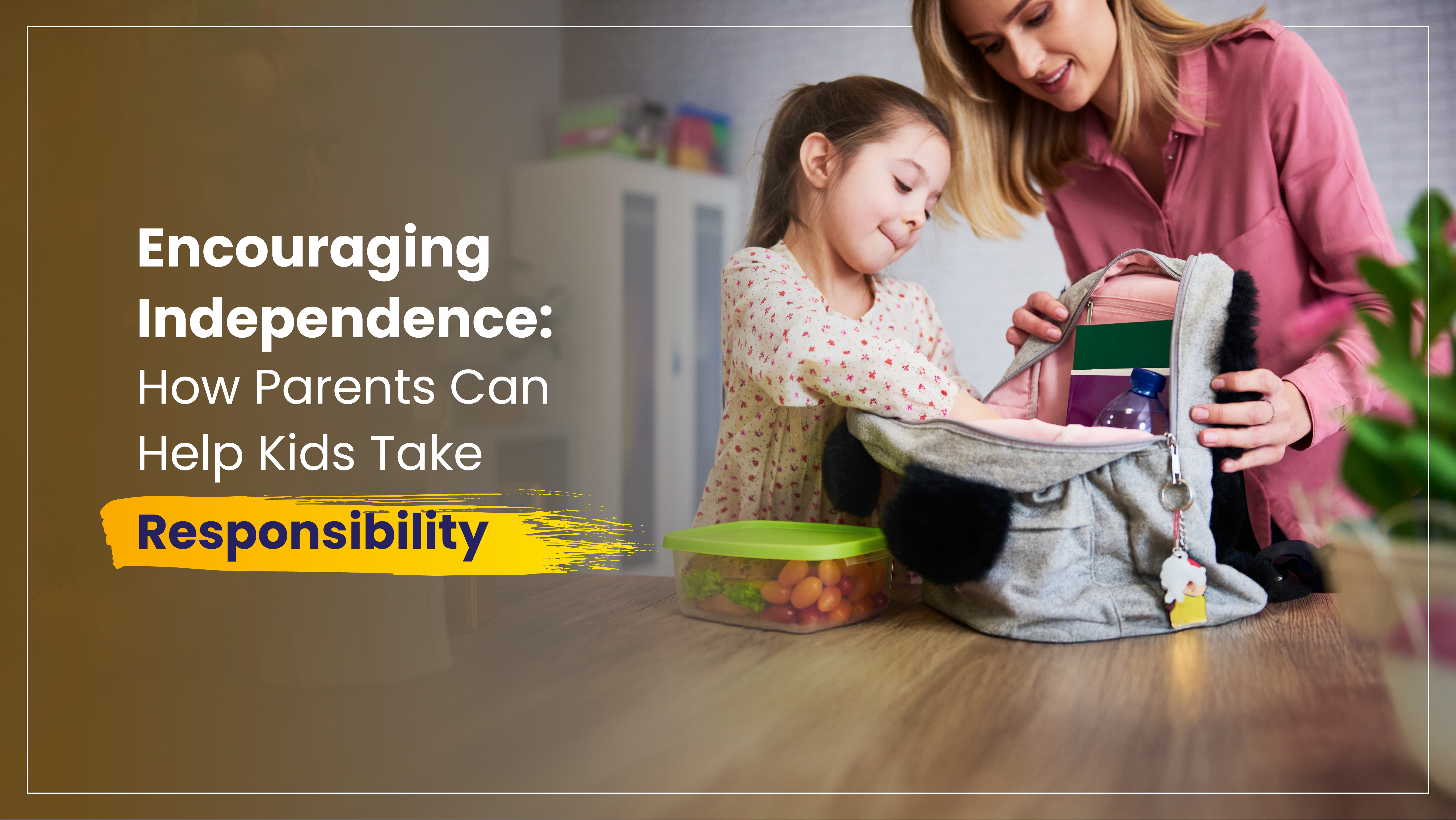Helping children develop independence and a sense of responsibility is one of the most valuable gifts parents can offer. Encouraging these traits builds confidence and prepares children to face life’s challenges with resilience and adaptability. Fostering independence starts early, with tasks growing as children mature. Young kids (3-5) can tidy toys and set the table, while those aged 6-8 do structured chores like packing school bags and feeding pets. By 9-11, they assist with household tasks, manage small allowances, and help with grocery shopping. Teens (12+) develop real-life skills like assisting in the kitchen, running errands, and organising schedules. Starting young builds confidence, problem-solving abilities, and resilience, laying a strong foundation for adulthood.
The Importance of Teaching Responsibility:
Teaching responsibility helps children understand the consequences of their actions, make informed decisions, and manage their time effectively. It is a cornerstone of personal growth, enabling kids to transition smoothly into adulthood. Whether it’s completing homework on time, managing personal hygiene, or assisting with household chores, these activities instil a sense of ownership and accountability in children.
7 Practical Strategies to Foster Independence:
- Assign Age-Appropriate Tasks: Giving children responsibilities suitable for their age is a great starting point. Simple tasks such as tidying up toys, setting the dinner table, or packing their school bag teach organisation and accountability. Gradually increasing the complexity of these tasks as they grow builds their confidence and sense of capability.
- Encourage Decision-Making: Allowing children to make choices helps them understand the value of decision-making. From selecting their clothes to planning weekend activities, small decisions can foster critical thinking and problem-solving skills. Parents can guide their children by discussing the pros and cons of each choice, empowering them to take ownership of their decisions.
- Promote Time Management: Time management is a crucial skill for fostering independence. Encourage children to use planners or calendars to organise their schedules. For example, setting specific times for studying, play, and relaxation helps them prioritise tasks and develop self-discipline.
- Model Responsible Behaviour: Children often learn by observing their parents. Demonstrating responsibility in daily tasks, such as managing finances or fulfilling commitments, sets a positive example. Discussing the thought process while making decisions can also give children insights into responsible behaviour.
- Praise Efforts and Celebrate Achievements: Recognising and appreciating the child’s efforts, even when the outcome isn’t perfect, reinforces positive behaviour. Celebrating their small successes boosts their confidence and motivates them to take on more responsibilities.
- Teach Problem-Solving: Encouraging children to solve problems independently helps them develop resilience. Parents can guide their children by asking open-ended questions like, “What do you think you can do to fix this?” This approach helps them think critically and build self-reliance.
- Be Patient and Supportive: Independence is a gradual process that requires patience. Allowing children to learn from their mistakes without criticism fosters a growth mindset. Providing support when needed reassures them that they have a safety net as they explore their capabilities.
Fostering independence in children lays the foundation for a responsible and confident future. By assigning tasks, promoting decision-making, and encouraging time management, parents can equip their children with essential life skills. At Narayana, children are encouraged to embrace responsibilities early on through various programmes and events that foster independence and self-confidence. For example, the soft skills development programme helps students build communication and leadership abilities, while events like the Model United Nations promote critical thinking, teamwork, and global awareness. Additionally, hands-on science experiments allow students to explore concepts and solve problems independently. These initiatives, combined with our nurturing environment, empower students to thrive and prepare them for future success because at Narayana, your dreams are our dreams.
